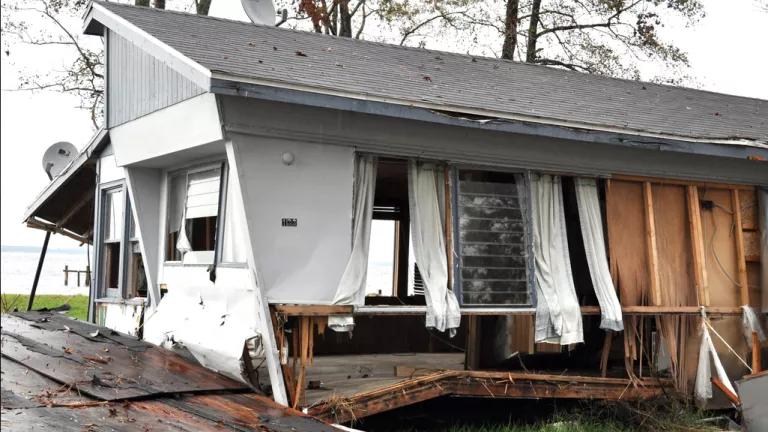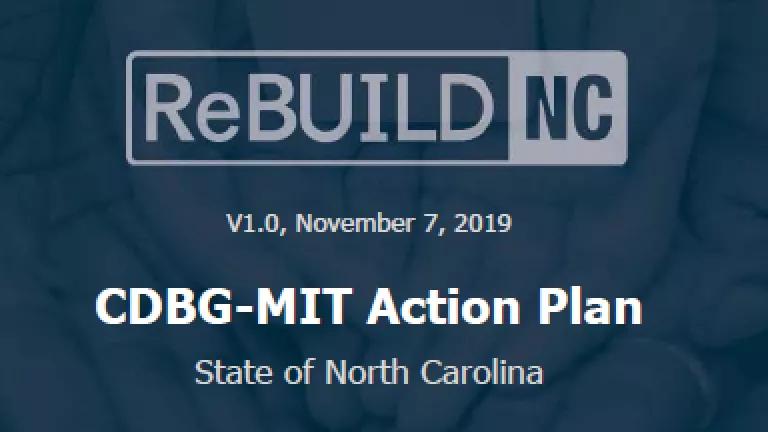
North Carolina’s legislature is poised to weaken already weak building codes, making new homes less safe, less efficient, and more expensive to own.
Marilee Calliendo/FEMA
North Carolina already has some of the weakest building codes in the nation when it comes to protecting people from hazards and disasters, according to the Federal Emergency Management Agency’s Division of Building Sciences. But the state’s legislature is determined to further water down the state’s building codes. Legislation is moving quickly towards passage that will weaken the state’s already anemic building codes.
If enacted, this would be North Carolina’s second big step backwards in as many years for climate resilience, as well as energy and water efficiency.
In 2023, North Carolina’s General Assembly passed HB 488 and overrode a subsequent veto by Governor Cooper. This legislation froze all the state’s building codes until 2031, hampering the state’s ability to move towards a safer and cleaner climate future.
The state is now relying on outdated codes adopted in 2015 for all new construction. For people buying newly constructed homes in North Carolina, their home will be less safe, be less able to withstand flooding and hurricane winds, and use more water and energy compared to homes in other states. That also means the owners will likely pay more for insurance and have higher water and energy bills.
But hey, things could be worse right? Yes – and North Carolina’s legislature is ready to make them worse with SB 166.
That legislation is currently on the fast track to passage and will mandate further weakening of the state’s already weak building codes. The legislation would:
- Prohibit public water utilities and operators from requiring back-flow preventers, which protect public water systems and ensure that contaminants don’t backup from a home or facility into a community’s drinking water system.
- Prohibit the state from requiring elevation of hot water heaters to decrease the potential for damage in a flood event. The state previously eliminated requirements to elevate homes to make them safer from flooding.
- Change requirements for insulation in certain homes, possibly making these homes less energy efficient.
- Puts additional pressure on local building inspectors to rush inspections and approvals by mandating timelines for permit reviews and requiring refunds of building permit fees if reviews and inspections are not done within 15 days.
- Restricts building code inspector access to a construction site, making it more difficult to conduct timely inspections and meet the legislatively mandated inspection timelines.
- Allows sewer system permits to automatically go into effect if a permit is not approved within 90 days and allows fast track approval of uninspected septic systems.
This legislation is a big loser for North Carolina residents and will make new homes less safe while increasing the cost of home ownership for decades to come. While developers will argue that weaker codes reduce the cost of construction, that only pads those developers’ profit margins. Cutting corners and building homes that are less safe and less efficient only adds to the long-term costs of owning or renting a home in North Carolina.



